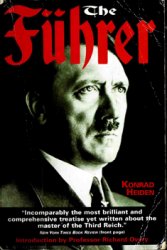Implementation of the flexible-response strategy in Europe proved equally frustrating. Since that strategy called for a marked enhancement ofthe options for limited war available to the United States and its chiefallies, it demanded a strengthening of NATO’s conventional deterrent. That, in turn, meant inducing European partners to make a greater contribution to NATO’s active-duty forces. Two problems immediately ensued. First, NATO allies proved unwilling to bear the expense of additional troop commitments. Second, they displayed apprehension about the future implications of the new administration’s push to lessen NATO’s dependence on nuclear deterrence. Although Kennedy had no intention of reducing the US commitment to European security, leading continental statesmen, always wary about American reliability, sensed a move in that direction. After all, if NATO’s conventional forces grew, would the American nuclear deterrent not become less central in NATO defense plans? Could they be sure, then, that the United States, in a crisis, would treat an attack on Bonn, Paris, or London as they would an attack on New York or Washington? The overriding specter that haunted the United States’ NATO partners, in short, was that the Kennedy initiatives might set in motion the long-dreaded decoupling of the United States and Western Europe.
The president tried to reassure European leaders that his concept offlexible response signified no diminution whatsoever in the American security commitment. In June 1961, he told French president Charles de Gaulle that, if the
Soviets ever appeared poised to overrun Europe, the "US must strike first with nuclear weapons." An attack on Europe, Kennedy stressed, "would be physically and automatically an attack on us."424 Those reassurances could not, however, allay European fears about Washington’s newfound emphasis on scenarios for fighting limited wars.
Some of the inherent difficulties with the application of the limited-war concept to specific arenas of confrontation were brought to a head by the Berlin crisis of 1961. Following a tense summit meeting with Kennedy in Vienna that June, Khrushchev renewed earlier threats that he had made to cut off allied access to West Berlin. The first phase of the Berlin crisis had erupted in 1958 after Khrushchev issued a blunt ultimatum to the West, in effect threatening to sever West Berlin’s all-important transit links. Recognizing that vulnerable West Berlin simply could not be defended by conventional means, and yet could not be abandoned without severely diminishing US credibility, Eisenhower held firm. He accepted, and so signaled, that nuclear weapons would be used to defend West Berlin ifneeded. In light of the city’s weighty symbolic value, Eisenhower was willing to run the risk of general war to retain its current status.
Kennedy quickly, if reluctantly, reached the same conclusion. Concerned that backing down in West Berlin would deal a severe blow to American credibility and simply invite aggression elsewhere, he adopted an equally tough policy. In a public speech of July 25, 1961, the president declared: "We cannot and will not permit the Communists to drive us out of Berlin, either gradually or by force." Kennedy offered a chilling depiction of the stakes in play. "In the thermonuclear age," he warned, "any misjudgment on either side about the intentions of the other could rain more devastation in several hours than has been wrought in all the wars of human history."425 Fortunately for him, Kennedy was not faced with the prospects of a nuclear showdown. Khrushchev once again backed away from his threats and helped defuse the crisis - this time with the erection of the soon-to-be-notorious Berlin Wall. US vulnerability in Berlin rendered anything less than a willingness to employ nuclear weapons impracticable. "It is central to our policy," Kennedy conceded as the crisis began to ease, "that we shall have to use nuclear weapons in the end, if all else fails, in order to save Berlin, and it is fundamental that the Russians should understand this fact."426




 World History
World History









